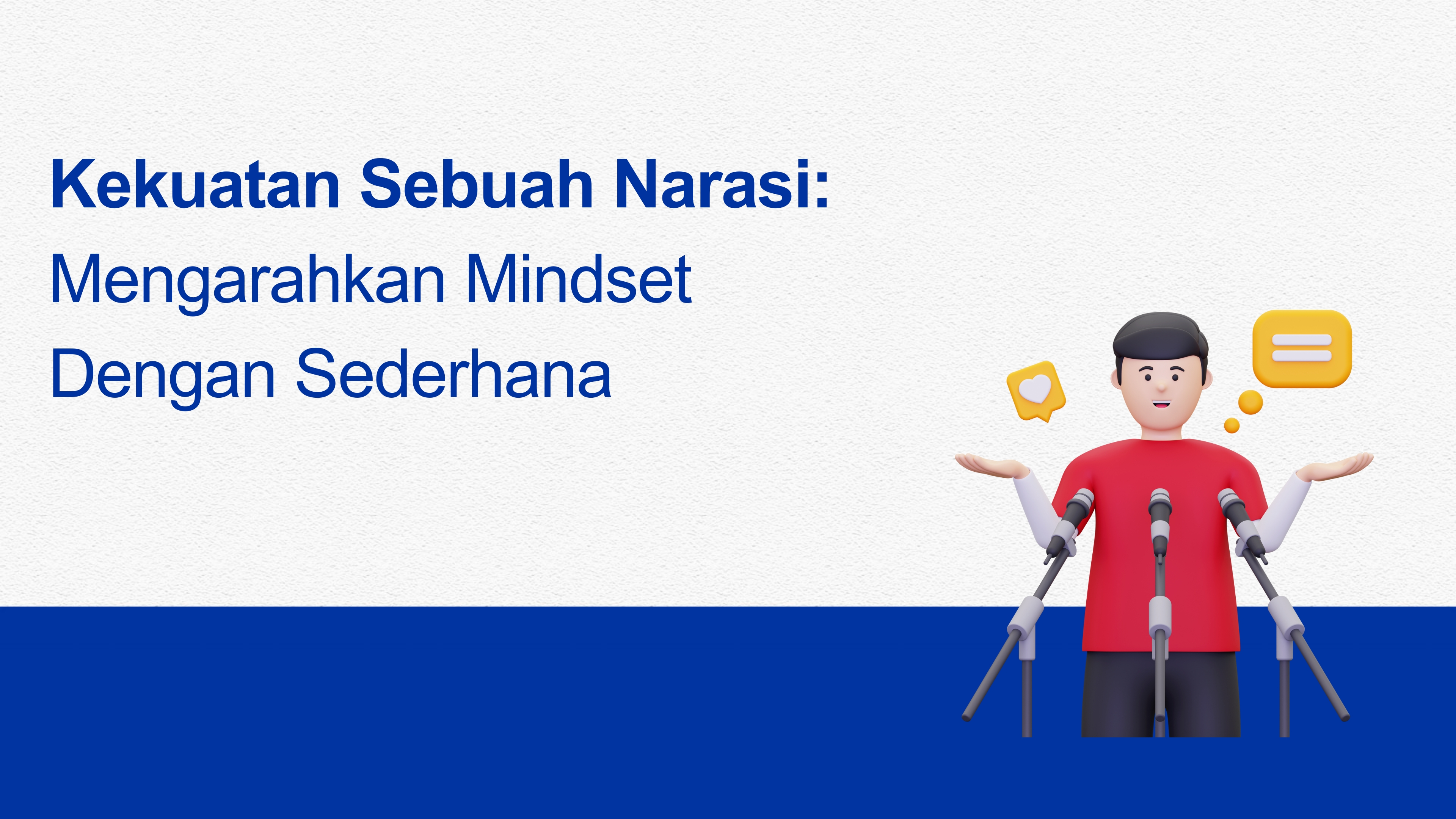The Power of Narration: Directing Mindsets with Ease

In a narrative, there is an activity that conveys various messages, and these messages can leave a first impression, especially on certain individuals to whom the message is directed. Mass communication is the process of delivering messages, information, or ideas broadly to a large audience, typically through mass media such as television, radio, newspapers, magazines, the internet, and social media.
A narrative is essentially communication through a medium, whether print or digital, and can be delivered orally or verbally. A discourse has its own characteristics that function to disseminate information, level education, stimulate economic growth, and create entertainment for individuals.
The importance of mass communication in the development of narratives is that it acts as a medium to shape an individual's perception. This is one of the key roles of a narrative. A narrative is a form of storytelling that has a series of events interconnected with each other. It functions as a framework in delivering mass communication. In a broader context, a narrative can also refer to how someone structures and conveys information or stories in daily life, including in speeches, articles, or discussions.
According to Bittner (in Elvinaro, 2017: 03), mass communication is a message communicated through mass media intended for a large number of people. Narratives and mass communication are closely correlated because narratives are one of the main tools used in mass communication to convey messages, shape public opinion, and influence audience behavior.
In general, there are several points that explain the functions of media communication and how it serves as a wave for narration to be known to pubic eyes as described by McQuail:
-
Information: Provides information about events and conditions in society and the world that show the relationship between the discussion and a specific topic.
-
Correlation: Explains and interprets meanings. Through a narrative about an issue that will be communicated to the public via mass communication, a concept of crowd control can emerge if an undesirable problem or issue arises.
-
Continuity: Refers to activities used to express specific wisdom as a representation of ongoing activities.
-
Entertainment: This segment serves as a distraction and eases social tension. A narrative can be useful in diverting or providing a distraction from a particular topic.
-
Mobilization: Provides a purpose with the hope of moving the opinions and thoughts of a specific group or individual.
With a strong narrative in mass communication, thoughts and emotions can be shaped. This is because, emotionally, an individual may feel attached or have an affinity for an issue they are interested in. Psychologically, this is related to the release of dopamine after hearing an issue connected to a focused interest. Dopamine itself is a relaxation hormone released when someone desires feedback and information that positively influences their goals.
The role of narratives in solidifying how comprehensive information is can influence mindsets, which lies in the concept of memory. According to Goldstein (2008), memory is a process involved in retaining stimuli that occur at a specific time. Stimuli stored in memory generally provide a means to store particular information and tend to resurface when triggered by stimulation.
This aligns with the theory proposed by Tulving (in Sternberg, 2008), which explains that memory is how a person retains interesting things according to their subjective nature. Memory can influence how someone narrates an event that has occurred according to the version they want to frame, leading to Passing Moral Judgement or the emergence of social perceptions of an event in the narrative. Research conducted by Dani Setiadarma, S.Sos, M.Ikom, and Drs. Heribertus Sunu Budhiarjo stated that Passing Moral Judgement involves conveying each individual's moral considerations while maintaining morals in an argument through that narrative.
The concept of narrative in mass communication plays an essential role as a tool to direct mindsets, where narratives can shape and direct the way audiences think and perceive certain issues. A well-constructed narrative can be an effective tool for influencing public opinion, creating a specific framework of thinking, and shaping the social reality desired by the message's deliverer. In mass communication, narratives are not merely tools for conveying information but are also forces that can influence values, beliefs, and actions of the audience. Therefore, mastering narratives in mass communication is essential for communicators to lead public discourse and influence mindset changes on a broad scale in the ever-changing context of the digital information era.
(Kornelia Johana / Humas UNDIRA)
Press Contact :
Biro Humas & Sekretariat Universitas Dian Nusantara
Facebook : www.facebook.com/undiraofficial
Instagram : www.instagram.com/undiraofficial
Twitter : www.twitter.com/undiraofficial
www.undira.ac.id
Other

The Impact of AI: Addressing Challenges or Creating New Problems?
Read more
Not a Trivial Matter: Recognizing and Preventing the 'Time Bomb' of Bullying in Educational Environments
Read more
Opening of Even Semester FY 2023 / 2024 and Signing of Memorandum of Understanding between UNDIRA and BPJS Employment
Read more
Campus Tanjung Duren
Jln. Tanjung Duren Barat II No. 1
Grogol, Jakarta Barat. 11470
Campus Green Ville
JIn. Mangga XIV No. 3
Campus Cibubur
Jln. Rawa Dolar 65
Jatiranggon Kec. Jatisampurna, Bekasi. 17432







